Coral-Balmoral veterans awarded gallantry citation 50 years on
IT TOOK 50 years for the military community to recognise the gallantry of Alan Graham, Stan Coker, John McDonald and the men who served alongside them in the largest action against an Australian military force since World War II — the Vietnam War.
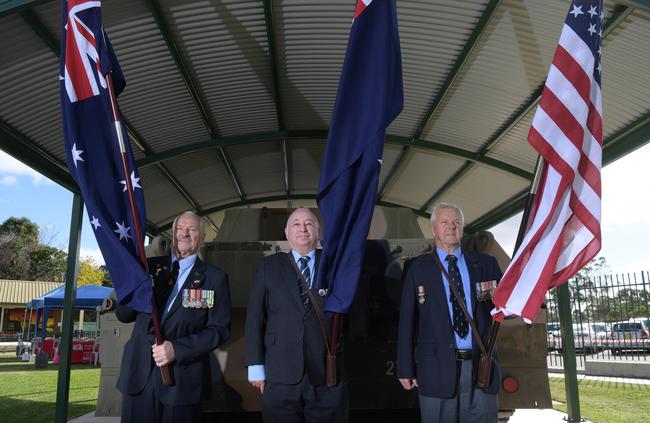
Macarthur
Don't miss out on the headlines from Macarthur. Followed categories will be added to My News.
IT TOOK 50 years for the military community to recognise the gallantry of Alan Graham, Stan Coker, John McDonald and the men who served alongside them in the largest action against an Australian military force since World War II.
The three men, members of the Vietnam Veterans Association of Australia Macarthur Sub Branch, were recently recognised as members of the 1st Australia Task Force with a unit citation for gallantry.
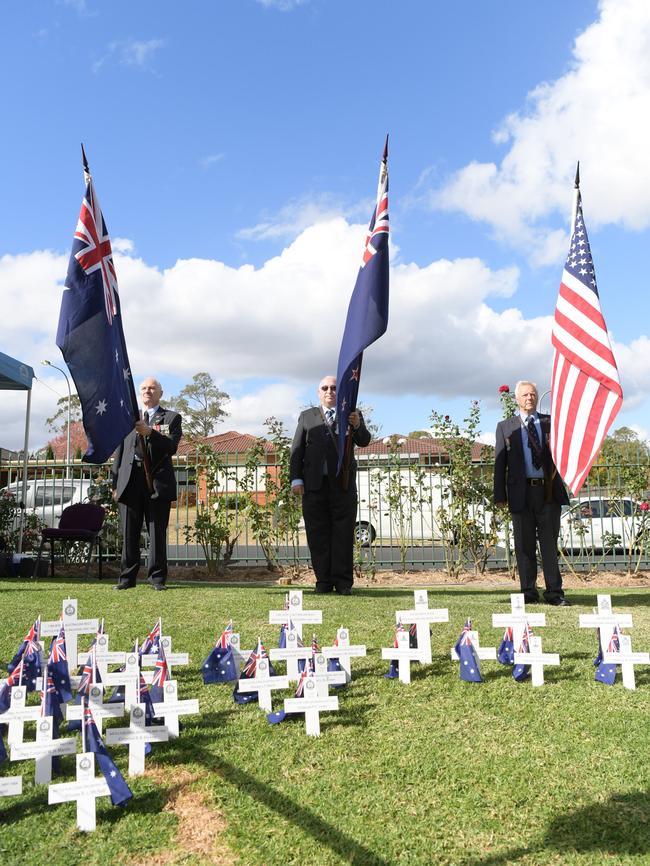
They fought in the Battle of Coral-Balmoral, a 26-day conflict during the Vietnam War where the outnumbered Australians defended Fire Support Bases Coral and Balmoral against a superior North Vietnamese and Viet Kong force.
A service at the Ingleburn RSL Sub Branch Memorial Garden was held today to honour the 26 young Australians who died at the Battle of Coral-Balmoral and to commemorate 50 years since the battle.
A commemorative address was given by Australian War Memorial Director and former defence minister Dr Brendan Nelson.
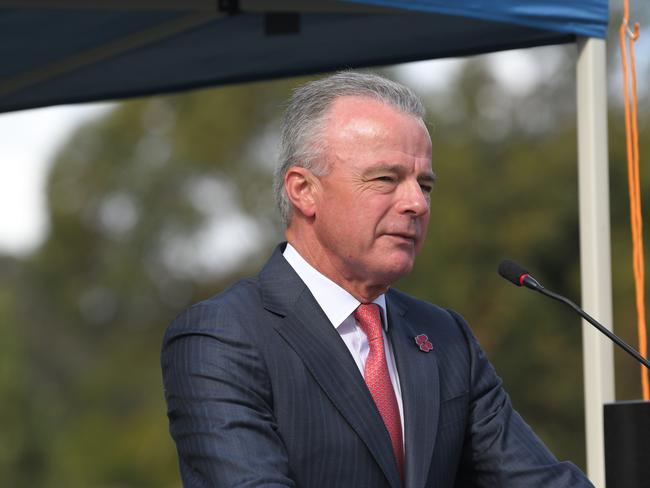
The three veterans agreed the unit citation was an important moment in recognising the battle’s place in Australia’s military psyche.
“It’s recognition for all your mates as a total unit, it’s nothing personal, it’s about recognising all those who died and those who have sacrificed a lot since then,” Mr Graham said.
“I think it shows that there was more than one battle fought in Vietnam, Long Tan was a ferocious battle, but Coral-Balmoral has been long forgotten about and there were others that have not been recognised.
“We lost a lot of mates there and many of them fought the demons that have come from that for a lot of years, as indeed we have.”
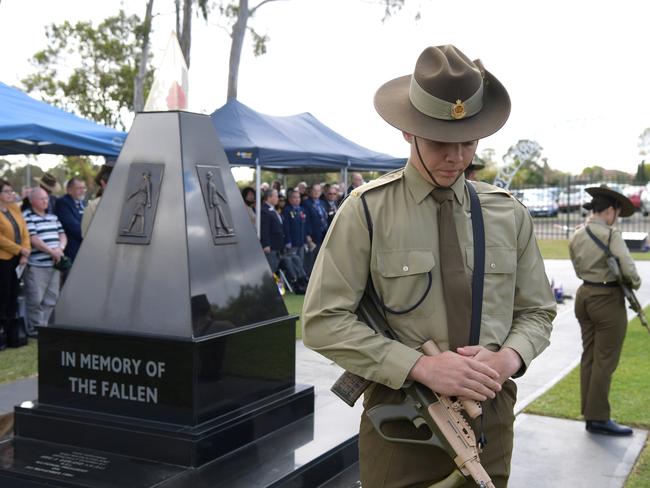
Mr McDonald said the battle’s significance needed to be advertised to the wider public.
“The Coral-Balmoral engagement was the biggest and the most costly. There were more people killed in that one engagement than any other battle,” he said.
“It involved all arms of the military, not just the infantry which other battles tended to do, and it was the first time that Australian infantry had been engaged with armour since World War II.
“It was a big deal for us then and it’s still a big deal, and it’s good to see that recognised in the military community at least.”

Mr Coker said the unit citation, which can also be worn by the families of deceased veterans, would honour those who fought on the front lines of the battle.
“There were a lot of medals awarded to the top echelon but they didn’t seem to drift down to us so it’s really just recognition of the blokes who were on the frontline.
Dr Nelson’s commemorative address offered a heartfelt apology on behalf of Australians to the returned Vietnam veterans, many of whom were rejected for many years after returning home amid anti-war sentiment among the public.

“The Vietnam War inflicted deep wounds on many of these young Australians, many returned bearing emotional wounds, denied healing by those who shunned them as reminders of a war that they had opposed,” he said
“From indifference to anger, the hurt inflicted remains the source of deep sorrows and in this, we failed you.”
Dr Nelson said the sacrifice of Australian soldiers in Vietnam and Coral-Balmoral would be remembered alongside Gallipoli, Kokoda and other important military events.
In an emotional speech, Dr Nelson relayed the personal experiences of soldiers who fought in the battle including the story of the initial assault on Fire Support Base Coral
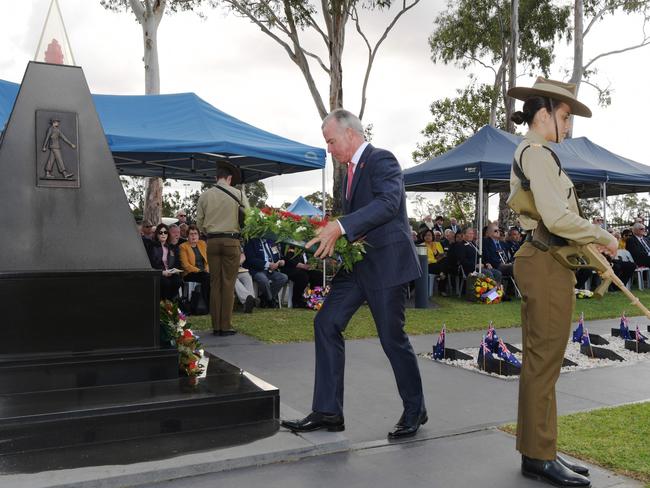
“Of the 18 men in the Australian mortar platoon, five were dead and eight were wounded,” he said.
“In total 11 Australians had been killed and 28 wounded. Their average age was 22.
“This is a story of sheer courage, determination, leadership and luck.”
IN OTHER NEWS
